Welcome to Mage by Moonlight!
My name is Celeste Larsen, and I am a practitioner of earth-based and ancestral spirituality and magic. In simpler terms, I am a pagan witch. I am also a writer, ritualist, and facilitator of witchcraft retreats, courses, and workshops.
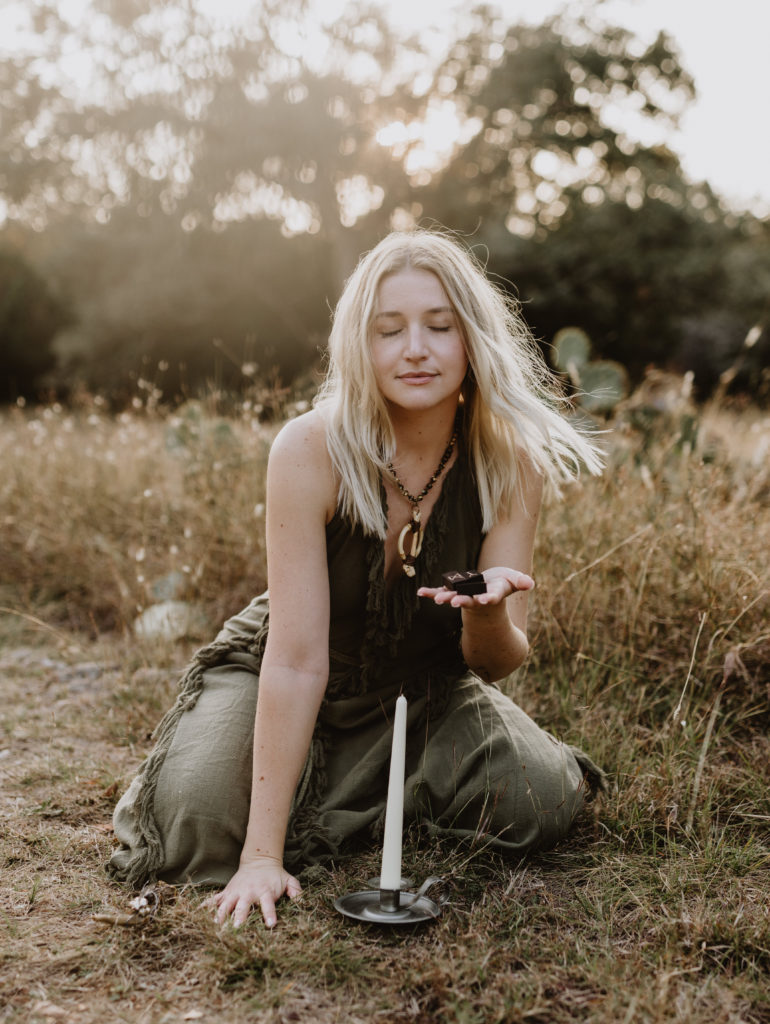
About Me: The Short Version
At the core of my spiritual and magical practices is devotion—devotion to the land I live on, to the spirits I work with, to the gods I worship, to my ancestors, and to my highest self and my soul purpose.
Trance journeying, spirit communication, and divination are foundational aspects of my practice.
Both my personal practice and my teachings center around the themes of animism, folk magic, polytheism, ancestor veneration, ritual practice, and self-healing through magic.
My path as a pagan witch is based in the traditions of my ancestral homelands, specifically those of Scandinavia, Ireland, and the British Isles. These traditions are my anchor and my compass, rooting me and guiding me in my esoteric explorations.
Originally from the United States, I now live in County Cork, Ireland.
My Spiritual Journey
I have been interested in spirituality and the mysteries of the universe for as long as I can remember. As a child I was fascinated with all things mystical and magical; when my nose wasn’t in a book (nearly always of the fantasy variety), I was barefoot outside, notebook in hand, jotting down notes about the mushroom I found or about the dragons I imagined were circling the skies above me.
I was first called to witchcraft when I was thirteen years old. Like many who are drawn to this path, my calling came in the wake of grief and hardship; just a few months prior, my mom had passed away suddenly. While I connected with the word “witch” deeply, it would be years before I would claim the title outwardly.
I dabbled in New Age spirituality throughout my teenage and college years—crystals, chakras, tarot, meditation.
But after graduating from college, I fell out of touch with my spiritual interests. Not only did I doubt everything I had felt and experienced, I put it out of my mind almost entirely.
In my mid-twenties, I experienced a three-year-long Dark Night of the Soul: a period of utter spiritual desolation, disconnection, and emptiness in which one feels totally separated from the Divine.
From the outside looking in, I was at a wonderful point in my life: I was newly married to the love of my life, we were living in our dream location (California, at the time), we were traveling frequently, we had good relationships with our friends and family, and we were both doing well in our careers.
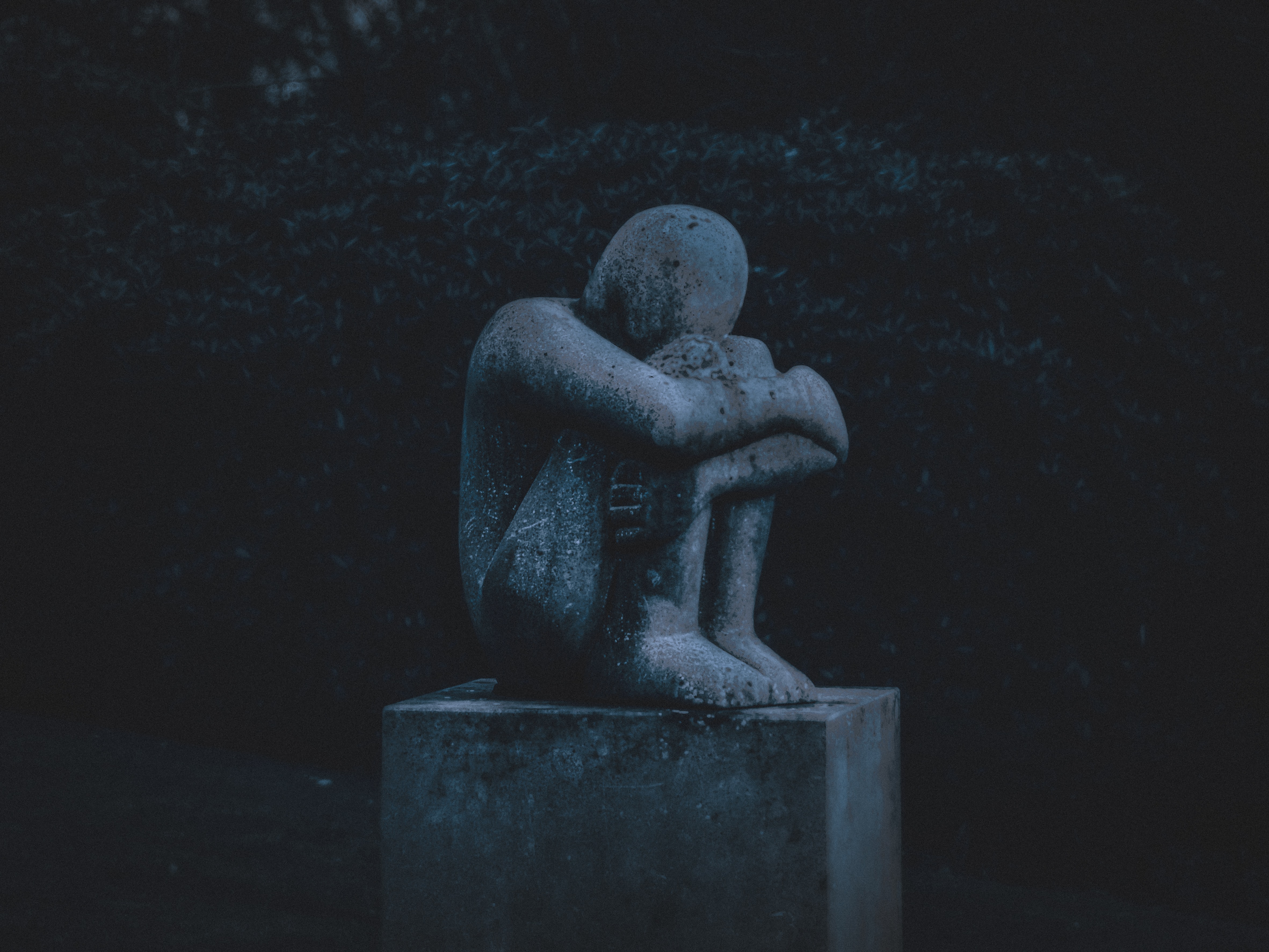
As I told my therapist at the time, it wasn’t that I was unhappy; on the contrary, I was extremely happy with my life—to the point where I was terrified by the idea that my existence, and therefore my ability to experience this life, could all be taken away from me in an instant.
I became consumed by the inevitability of death and the concept of non-existence.
Each night I laid awake wondering if this would be the night when I wouldn’t wake up in the morning. I worried about car crashes. I worried about choking to death. I worried about contracting an incurable illness. Above all, I worried that this existence was utterly meaningless.
What was the point of this existence if one day I would be gone, and everyone I loved would be gone, and no one would be around to remember any of us? Existence seemed more cruel than anything else.

I remember the exact moment my entire worldview shifted. In an act of desperation, I visited my local metaphysical shop—something I hadn’t done in years. I purchased a double terminated amethyst crystal, laid down on my living room floor, placed the crystal on my forehead, and closed my eyes.
What I experienced during that meditation caused me to reconsider the beliefs (or lack thereof) I had developed over the years. It was the start of a long and colorful journey, and the beginning of my spiritual awakening.
What Do I Believe?
First and foremost, I believe that as humans, we can never have all the answers. To be a spiritual being means to never stop learning—which is how I chose the name for this website: Mage by Moonlight.
A mage is a practitioner of magic. More specifially, a mage is someone who achieves outcomes and acquires wisdom through supernatural means and lifelong occult study. Mage by Moonlight pays tribute to the moon’s role in my spiritual workings, as well as my commitment to continued learning.
That brings me to the core of my spiritual beliefs: that nature is sacred and divine.
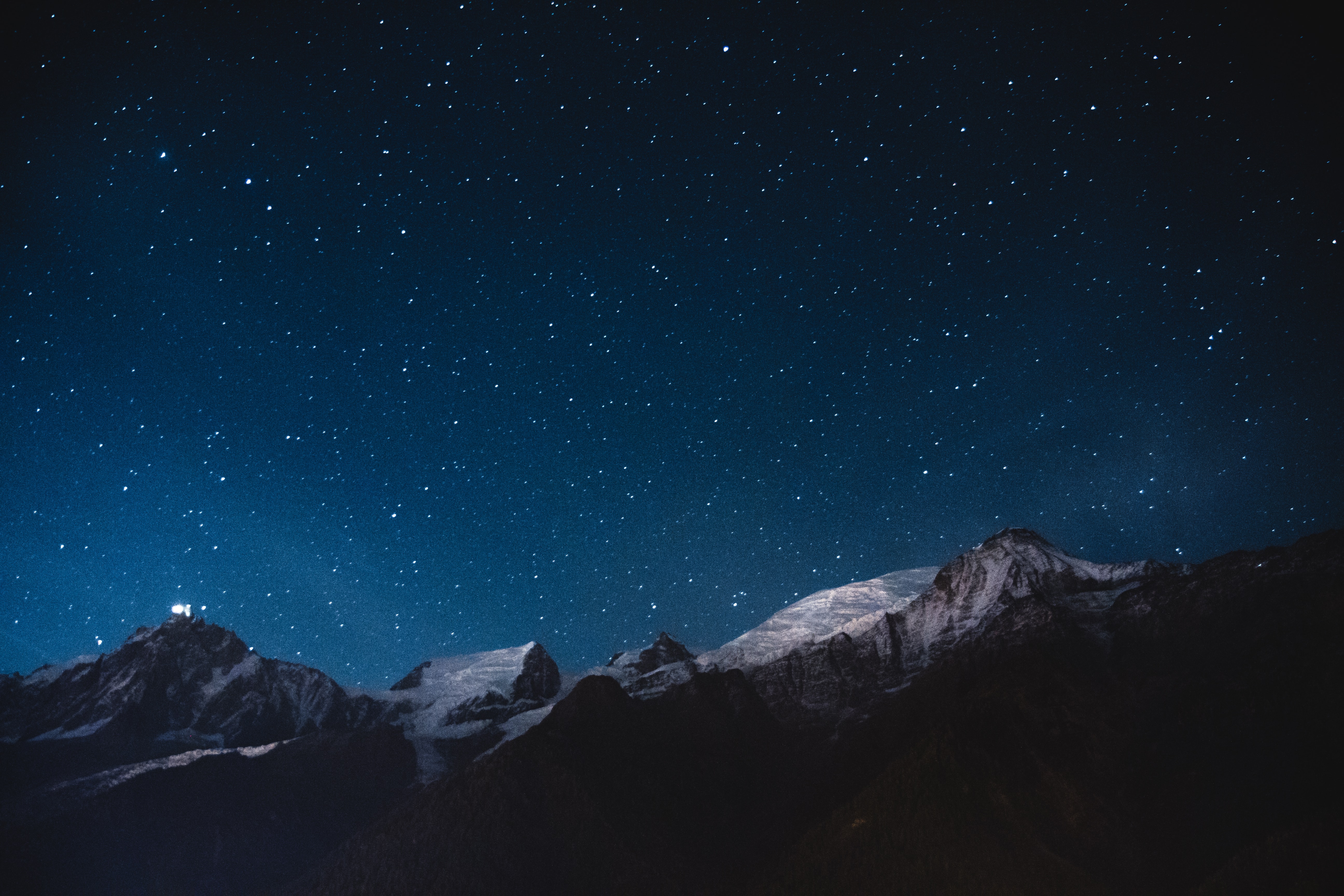
My spiritual practices center very heavily around nature, including the moon, the planets, the seasons, and the earth itself.
For thousands and thousands of years, humans have followed the cycles of nature for survival, and turned to the skies when faced with the mysteries of life. Although we now have much more scientific knowledge than our ancient ancestors ever did, humans are still drawn towards the healing embrace of nature.
Have you ever looked up a full moon and felt its light lift your spirits? Have you ever dug your toes into the sand and instantly felt comforted and relaxed? Have you ever walked through a forest and fallen silent at the beauty and majesty of the natural world?

I believe that humans are so drawn to nature not just because nature is divine, but because we have the divine in us as well, and we recognize that pure magic in the natural world.
Yes, I believe that all humans are inherently magical and spiritual begins. I believe that we all have the power to tap into the energies of the universe and connect with them if we so choose, because we are as much a part of the universe as the ocean, the mountains, and the forests are part of it.
What Do I Practice?
In connecting with my spirituality, I have become increasingly drawn to the practices and beliefs of my ancient ancestors, who primarily came from Denmark, Germany, Sweden, Ireland, England, and other countries in Northwestern Europe.
As a descendent of multiple Northern European cultures, I choose to honor the shared beliefs of my spiritual ancestry in a modern context.
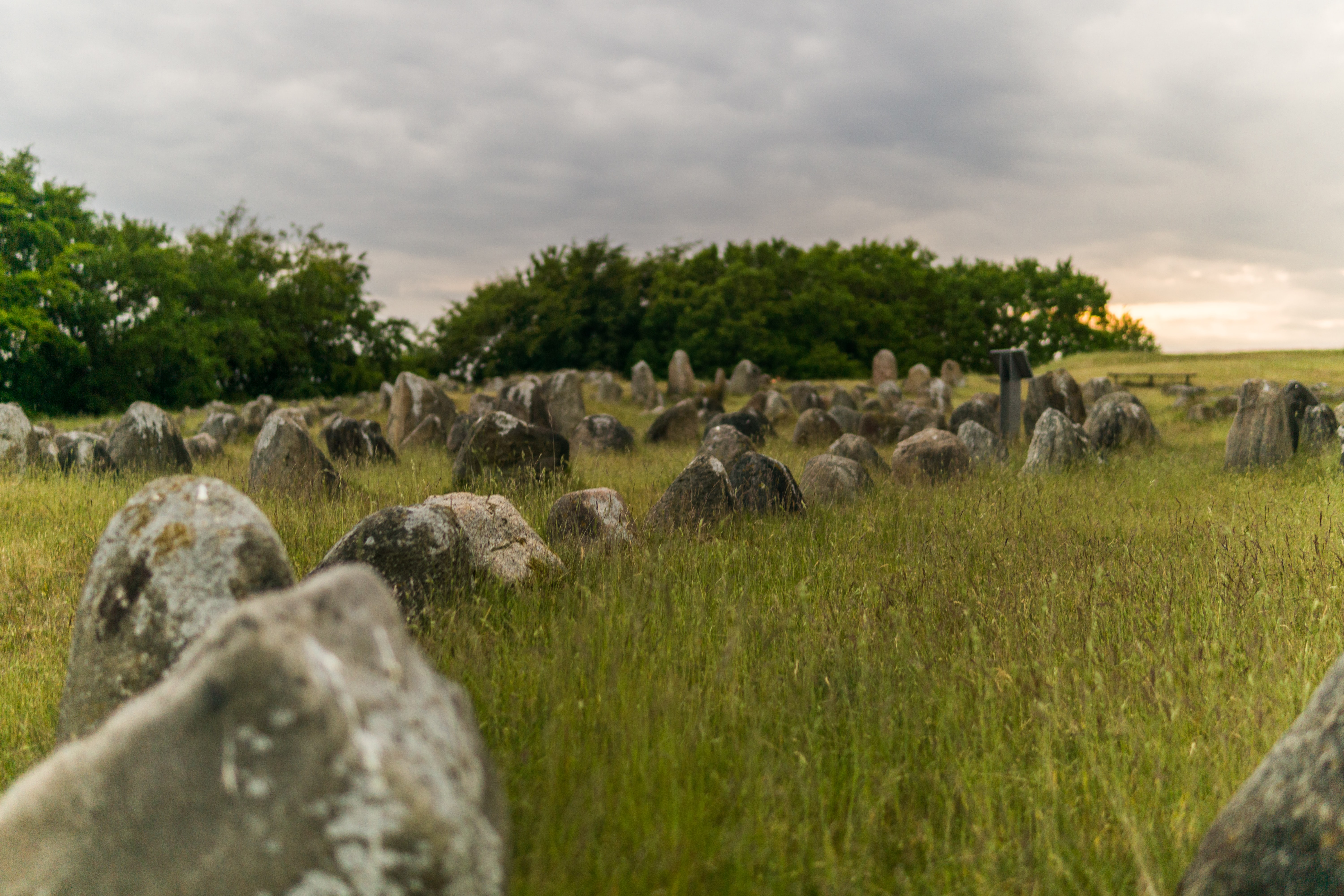
At the core of these beliefs is the idea that nature is sacred.
For tens of thousands of years, it was not churches or temples that were sacred spaces, but the land itself. Forests, bogs, and hilltops were places humans could visit to connect with the divine and speak to their gods.
In terms of a modern spiritual practice, here is what this looks like for me:
- Working within the worldview of animism — the knowledge that all things are ensouled and alive with spirits, and that it is this web of energy that makes magic possible.
- Following and honoring the cycles and rhythms of nature, such as the moon phases and the seasons.
- Right relationship with the natural world, especially the land where I live. I try to spend time outside every day and appreciate the trees, plants, and animals in my local area.
- Praying to, honoring, and working with deities and spirits.
- Upholding a regular practice of meditation, spirit flight (trance journeying), spirit work, divination, and self-reflection.
- Remembering and paying respects to my ancestors, both ancient and recently deceased.
- Practicing simple, everyday magic to bring change and positivity into my life, such as meditating in the light of the full moon, lighting candles to send my intentions out into the world, and walking barefoot on the earth to ground myself.
- Committing myself to continual study of pagan religious and cultural traditions.
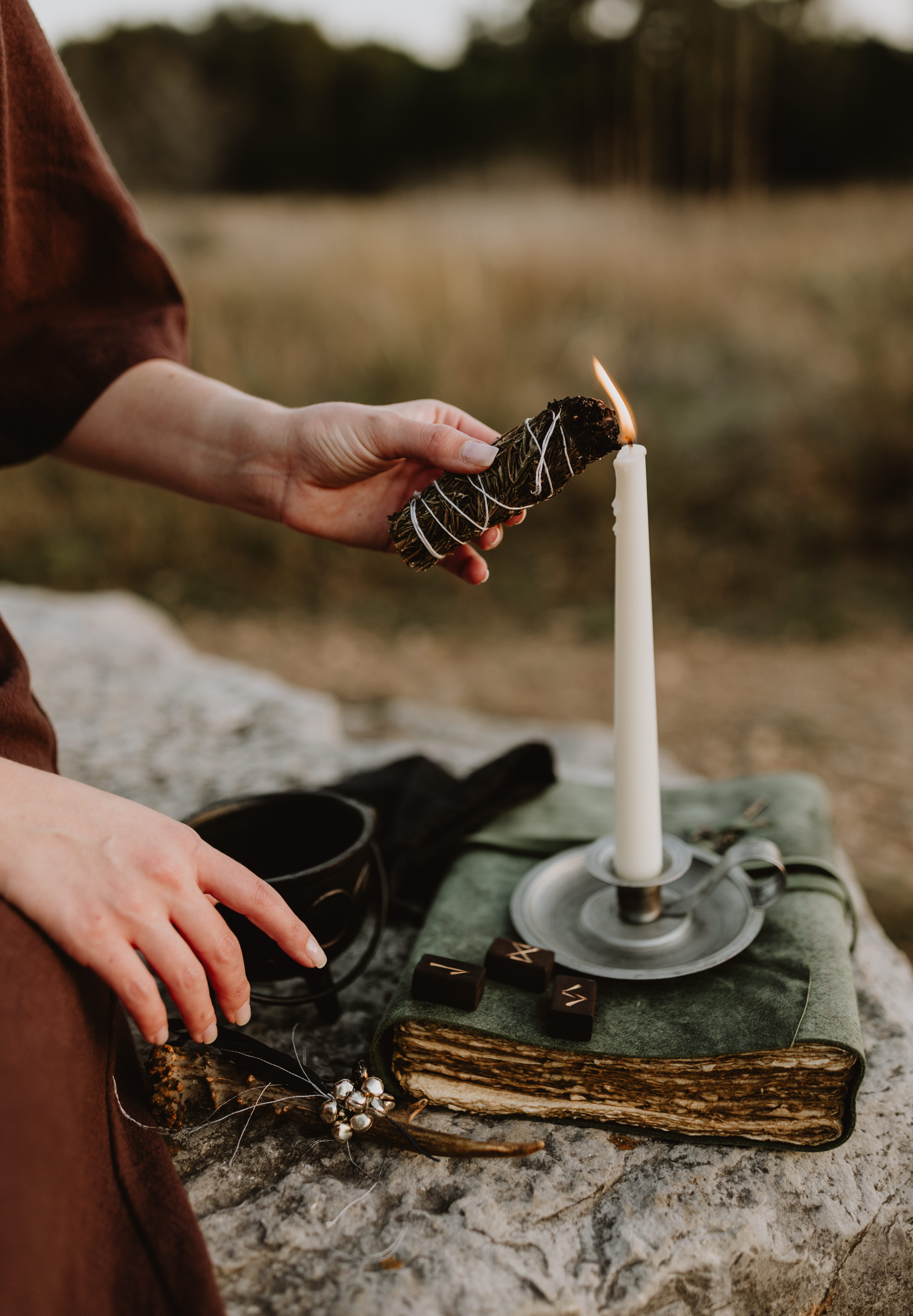
On the Mage by Moon website, you will find musings and snippets from my spiritual journey and pagan practices, including my altars, rituals, celebrations, and crafts.
An Extremely Important Note
Mage by Moonlight is a proudly anti-racist and anti-hate website. To be a contemporary pagan is to be an academic, and discrimination, tribalism and “folkishness” have no place in this belief system. Period.
Anyone can practice Germanic paganism (including Norse and Anglo-Saxon paganism), regardless of their age, race, ethnic origin, nationality, culture, disability status, gender / gender identity, sexual orientation, marital status, or socioeconomic status.
